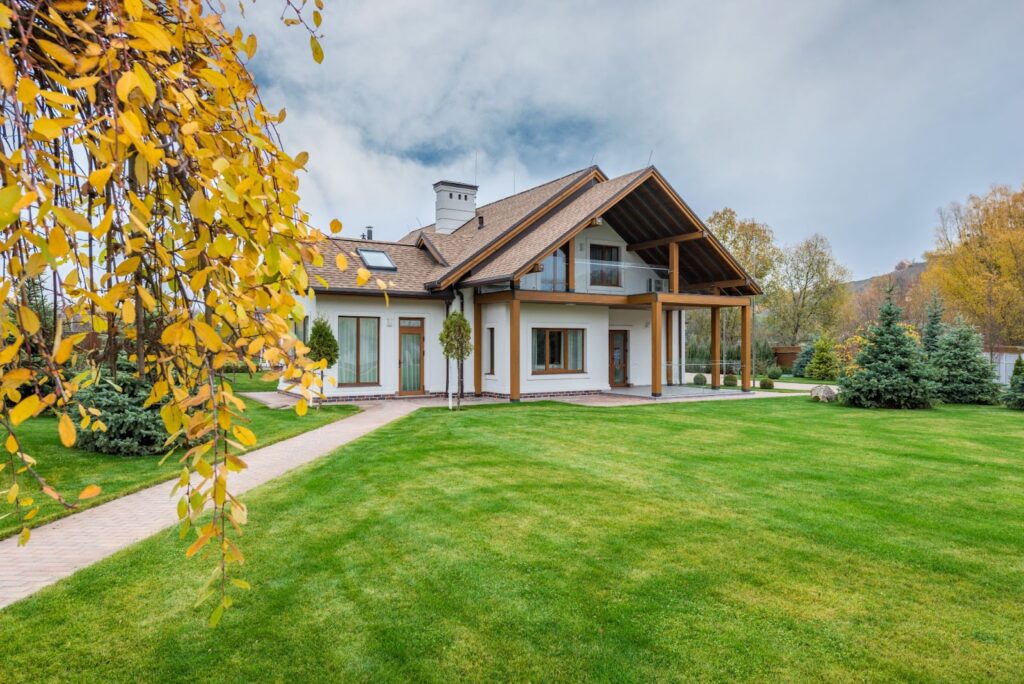Buying a new construction home can be an exciting and rewarding experience. From selecting the perfect floor plan to watching your dream home come to life, there’s something truly special about being involved in every step of the process. In this article, I’ll provide you with valuable insights and tips on what to consider when purchasing a new construction home.
One of the main advantages of buying a new construction home is the opportunity to customize it according to your preferences. Whether you want an open-concept living area or a gourmet kitchen, working with the builder allows you to make design choices that reflect your personal style. Additionally, many new construction homes come with modern features and energy-efficient technologies, providing you with comfort and savings in the long run.
However, it’s important to approach buying a new construction home with careful consideration. As exciting as it may be, there are potential challenges and pitfalls that need to be navigated. It’s crucial to thoroughly research builders, review contracts, understand warranties, and ensure that all necessary inspections are conducted. By doing so, you can confidently embark on this journey towards owning your brand-new dream home.
In conclusion, buying a new construction home offers numerous benefits such as customization options and modern amenities. However, it requires diligent research and attention to detail throughout the process. In the following sections of this article, we’ll delve deeper into these aspects and provide practical advice for making informed decisions when purchasing a new construction home.
Understanding the Benefits of Buying a New Construction Home
When it comes to purchasing a new home, there are plenty of options available. One option that has gained popularity in recent years is buying a new construction home. As an expert in real estate, I’ll explain some of the key benefits associated with this choice.
1. Customization Opportunities: One of the major advantages of buying a new construction home is the ability to customize it according to your preferences and needs. Unlike existing homes where you may have limited room for changes, with a new construction home, you can select finishes, appliances, and even make structural modifications before moving in.
2. Modern Design and Amenities: New construction homes often feature modern designs and state-of-the-art amenities that cater to today’s lifestyle demands. From open-concept layouts to energy-efficient features like smart thermostats and solar panels, these homes are designed with convenience and sustainability in mind.
3. Low Maintenance and Repairs: Another benefit is that new construction homes typically require less maintenance compared to older properties. With everything being brand-new, you won’t have to worry about immediate repairs or replacements for major components such as plumbing or electrical systems.
4. Warranty Coverage: Most reputable builders offer warranties on their newly constructed homes. These warranties can provide peace of mind knowing that any potential defects or issues will be addressed by the builder within a specified time frame.
5. Energy Efficiency: New construction homes are built with energy efficiency in mind, which can lead to significant cost savings over time. They often include features like insulation upgrades, high-efficiency appliances, double-pane windows, and more, reducing utility bills while minimizing environmental impact.
In summary, buying a new construction home offers several benefits including customization opportunities, modern design features and amenities, low maintenance requirements, warranty coverage from builders, and increased energy efficiency leading to long-term savings.
If you’re considering purchasing a new home, it’s important to weigh the advantages and disadvantages to make an informed decision that aligns with your lifestyle and financial goals.
Factors to Consider Before Buying a New Construction Home
When it comes to buying a new construction home, there are several factors that you should carefully consider before making your decision. As an expert in the field, I’ll guide you through some key points that can help you make an informed choice.
1. Location: One of the most crucial factors to consider is the location of the new construction home. Take into account its proximity to schools, healthcare facilities, shopping centers, and your workplace. Also, consider the neighborhood’s safety and overall appeal.
2. Builder Reputation: Researching the reputation of the builder is essential. Look for feedback from previous buyers and check if they have a history of delivering quality homes on time. A reputable builder will ensure superior craftsmanship and use high-quality materials.
3. Financing Options: Explore different financing options available for new construction homes. Compare interest rates and loan terms from various lenders to find the best deal that suits your financial situation.
4. Home Warranty: Inquire about the warranty offered by the builder on their new construction homes. A comprehensive warranty can provide peace of mind knowing that any structural defects or issues will be addressed by the builder within a certain timeframe.
5. Upgrades and Customization: Find out if the builder offers any customization options or upgrades for your new home during construction or after completion. This allows you to personalize your living space according to your preferences and needs.
6. Energy Efficiency: With rising energy costs, it’s important to consider how energy-efficient your potential new home is. Look for features such as insulation, energy-efficient appliances, double-pane windows, and efficient heating/cooling systems that can help save money in the long run.
7. HOA Fees and Restrictions: If the new construction home is part of a homeowner’s association (HOA), find out about any associated fees and restrictions imposed by them. Understand what these fees cover and ensure they align with your budget and lifestyle.
8. Completion Timeline: Inquire about the estimated completion timeline for the new construction home. This will give you an idea of when you can expect to move in and plan accordingly.
9. Future Development: Consider any future development plans in the area surrounding the new construction home. While it may add value to your property, it could also bring additional traffic or noise that may impact your quality of life.
10. Inspection and Walkthrough: Before closing on a new construction home, schedule an inspection and walkthrough with a professional inspector. They will identify any potential issues or defects that need attention before finalizing the purchase.
By carefully considering these factors, you’ll be well-equipped to make an informed decision when purchasing a new construction home. Remember to take your time, ask questions, and consult with professionals throughout the process. Happy house hunting!
Choosing the Right Builder for Your New Construction Home
When it comes to buying a new construction home, choosing the right builder is crucial. After all, you want to ensure that your dream home is built with quality craftsmanship and attention to detail. Here are some key factors to consider when selecting a builder:

- Reputation and Experience: Research the builder’s reputation in the industry. Look for builders who have a solid track record of delivering high-quality homes on time and within budget. Additionally, consider their experience in constructing homes similar to what you’re looking for.
- Portfolio of Work: Review the builder’s portfolio to get an idea of their style and design aesthetic. Look for homes that align with your vision and preferences. This will give you confidence that they can bring your dream home to life.
- Customer Reviews: Read reviews from past clients to gauge their satisfaction level with the builder’s workmanship, communication, and overall experience. Websites like Yelp or Google Reviews can provide valuable insights into previous customers’ experiences.
- Transparency and Communication: A good builder should be transparent about costs, timelines, and any potential challenges during construction. Communication is key throughout the building process, so choose a builder who prioritizes regular updates and open lines of communication.
- Warranty and After-Sales Service: Inquire about warranty options offered by the builder for defects or issues that may arise after moving into your new home. A reputable builder stands behind their workmanship and offers reliable after-sales service.
- Financial Stability: Ensure that the builder is financially stable before entering into any contracts or agreements with them. You want assurance that they have the resources to complete your project without delays or compromises on quality.
Remember, investing in a new construction home is a significant decision, so take your time when choosing a builder who will bring your vision to life.
Exploring Different Floor Plans and Designs for Your New Construction Home
When it comes to buying a new construction home, one of the most exciting aspects is exploring different floor plans and designs. This is where you can let your imagination run wild and envision the perfect layout for your dream home. In this section, I’ll walk you through the key considerations to keep in mind as you explore various options.
1. Lifestyle and Needs
Before diving into specific floor plans, take some time to assess your lifestyle and needs. Consider factors such as family size, future growth, entertaining preferences, and any special requirements like home offices or fitness areas. This will help guide your search for the right design that caters to your unique requirements.
2. Size and Layout
The size of your new construction home will largely depend on your budget and personal preferences. Think about how much space you need in terms of bedrooms, bathrooms, living areas, and storage. Additionally, consider the overall layout – do you prefer an open concept design or more defined rooms? Do you want a single-story or multi-story home?
3. Architectural Style
Next, think about the architectural style that appeals to you. Whether it’s modern minimalism, traditional charm, or something in between, selecting a design that aligns with your aesthetic taste will ensure long-term satisfaction with your home.
4. Customization Options
One of the advantages of buying a new construction home is the opportunity for customization. Look for builders who offer flexibility in choosing finishes, fixtures, flooring materials, cabinetry styles, color palettes, etc., so you can personalize every detail according to your taste.
5. Budget Considerations
Finally (and perhaps most importantly), keep budget considerations in mind throughout this process. While it’s easy to get carried away with extravagant features and upgrades, make sure they align with what you can comfortably afford without compromising other financial goals.
In conclusion, exploring different floor plans and designs for your new construction home is an exciting journey that requires careful consideration of your lifestyle, size requirements, architectural style preferences, customization options, and budget. By keeping these factors in mind, you’ll be well-equipped to make an informed decision that results in a home you love for years to come.
Navigating the Financing Options for Your New Construction Home
Understanding Your Financing Options
When it comes to buying a new construction home, one of the most important aspects to consider is how you will finance your purchase. With various financing options available, it’s essential to understand them and choose the one that best suits your needs. Here are some key factors to consider:

- Traditional Mortgage Loans: This is perhaps the most common option for financing a new construction home. These loans are offered by banks and lending institutions and typically require a down payment ranging from 3% to 20% of the purchase price. The interest rates can vary, so it’s crucial to shop around and compare offers.
- Construction-to-Permanent Loans: If you’re building a custom home or working with a builder on a specific project, this type of loan might be worth exploring. It combines both the construction loan and long-term mortgage into one package, simplifying the process and potentially saving you money on closing costs.
- FHA Loans: Backed by the Federal Housing Administration, FHA loans are popular among first-time homebuyers due to their lower down payment requirements (as low as 3.5%) and more lenient credit score criteria. However, they do come with additional fees such as mortgage insurance premiums.
- VA Loans: Available exclusively for eligible veterans and active-duty military personnel, VA loans offer competitive interest rates and require no down payment in most cases. If you qualify for this type of loan, it can be an excellent option for financing your new construction home.
Tips for Choosing the Right Financing Option
With so many choices available, deciding on the right financing option can feel overwhelming. Here are some tips to help you make an informed decision:
- Assess your financial situation: Determine how much you can comfortably afford in terms of monthly mortgage payments.
- Compare interest rates: Get quotes from multiple lenders to ensure you secure the best possible rate.
- Consider your long-term plans: If you plan to stay in the home for a short period, an adjustable-rate mortgage might be suitable. If you’re in it for the long haul, a fixed-rate mortgage provides stability.
- Consult with a professional: A mortgage broker or financial advisor can provide valuable insights and guidance tailored to your specific circumstances.
Remember, financing a new construction home is a significant commitment. Take the time to research and explore all options before making a decision that aligns with your goals and financial capabilities.
Understanding the Building Process of a New Construction Home
Building a new construction home can be an exciting undertaking. It allows you to have a say in every aspect of your dream home, from the layout and design to the materials used. However, before diving into this process, it’s important to understand how it all works. In this section, I’ll walk you through the building process of a new construction home.
- Design and Planning: The first step in building a new construction home is designing and planning. This involves working with an architect or builder to create blueprints that reflect your vision for the house. You’ll discuss details such as room sizes, layouts, and architectural styles.
- Permits and Approvals: Once the design is finalized, it’s time to obtain any necessary permits and approvals from local authorities. This ensures that your home complies with building codes and regulations.
- Site Preparation: With permits in hand, site preparation begins. This includes clearing the land, leveling the ground if needed, and installing temporary utilities such as electricity and water for construction purposes.
- Foundation Construction: The foundation is crucial for a sturdy and stable home. Depending on factors like soil conditions and local regulations, either a basement or slab foundation will be constructed.
- Framing: Once the foundation is complete, framing begins. This involves constructing the skeletal framework of your home using wood or steel beams. Walls are erected, floors are built, and roof trusses are installed.
- Mechanical Systems Installation: With the shell of your home in place, attention turns to installing essential mechanical systems such as plumbing, electrical wiring, heating/cooling systems (HVAC), ventilation systems (HVAC), insulation materials etc..
- Interior Finishes: After completing mechanical installations comes interior finishes – adding drywall to walls & ceilings; painting them; installing flooring; cabinetry, countertops, and fixtures in the kitchen and bathrooms; and other details like lighting fixtures, door hardware etc..
- Exterior Finishes: With the interior taking shape, it’s time to work on the exterior finishings. This includes installing siding or brickwork, roofing materials, windows and doors.
- Final Inspections: Once construction is complete, your local building department will conduct a final inspection to ensure that everything meets safety standards and regulations.
- Closing and Move-In: After passing inspections, you’ll close on your new construction home with the builder or developer. You can then move in and begin enjoying your brand-new space.

